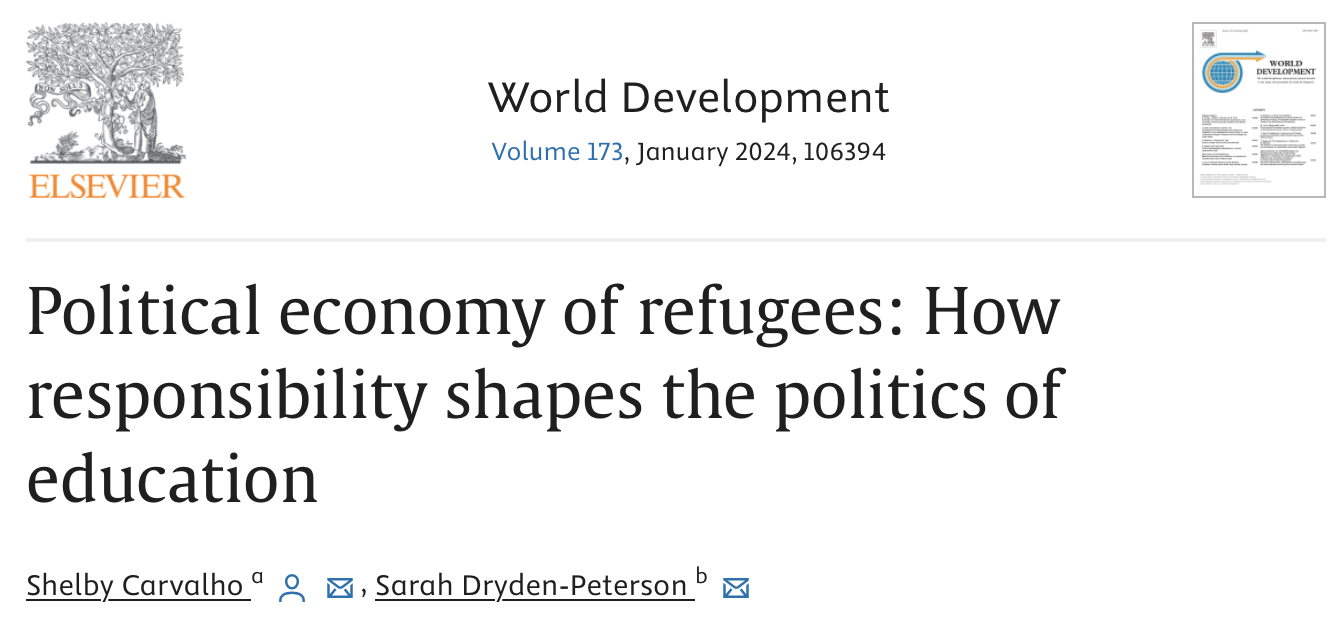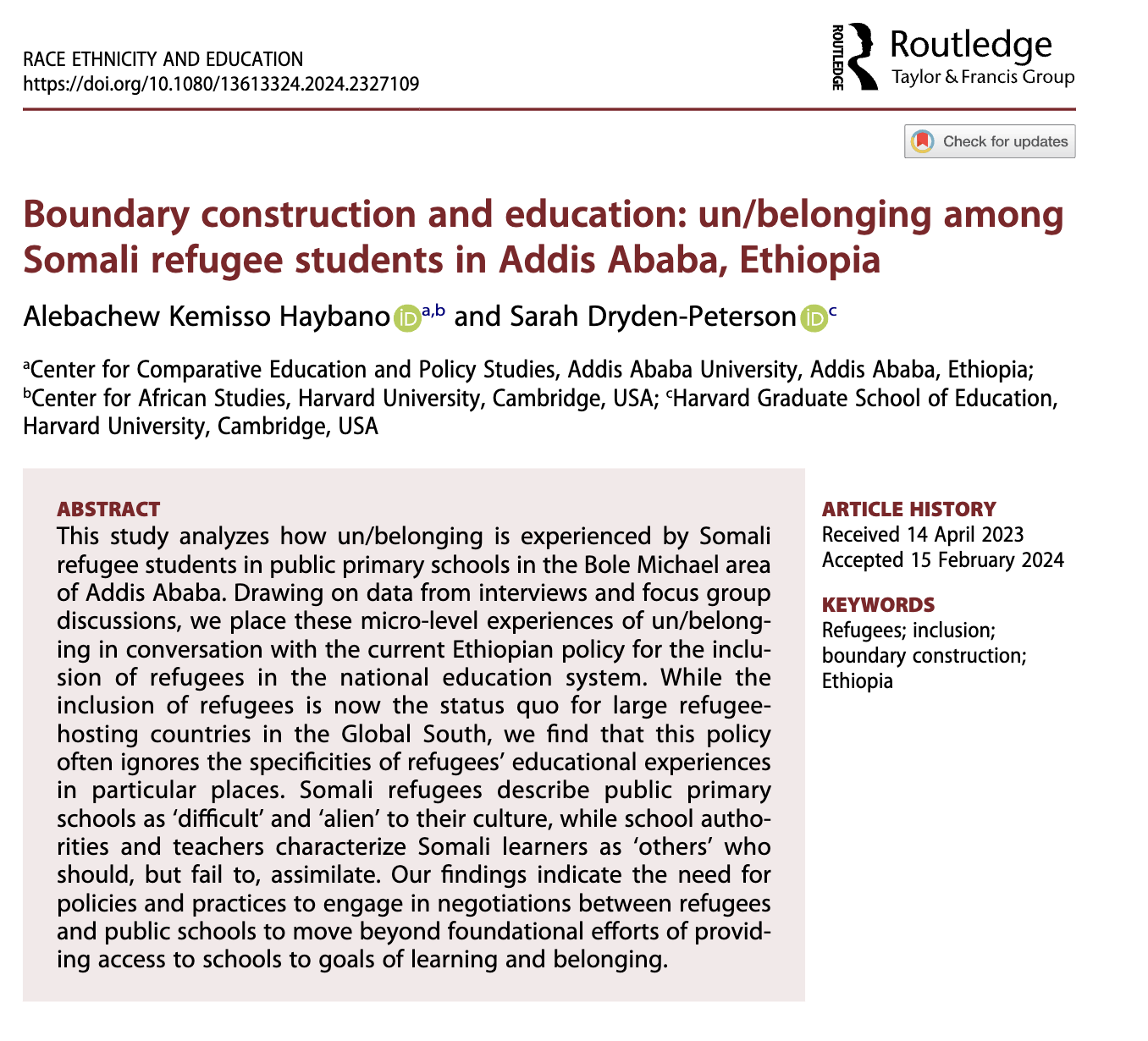Integration & Belonging
How can schools create welcoming communities and spaces of belonging?
Global policies have shifted toward a model of including refugees in national school systems. REACH explores how these policies are understood and experienced by students, teachers, and governments in contexts that host large refugee populations. We find that refugees are often included in national schools that already serve marginalized national students who feel alienated from opportunities. The collective challenge is to raise the quality of education for all, including access to feelings of belonging and future opportunities. Our work demonstrates how key to meeting this challenge is focusing on inclusive curricula and pedagogy and caring relationships among teachers and students.
research
Refugee REACH director Sarah Dryden-Peterson and affiliate Celia Reddick of HGSE presented their research findings during the virtual Language and Migration symposium, hosted by the Princeton Institute for International and Regional Studies.
This event convened humanists and social scientists, fieldworkers and policymakers, artists and writers, to think together about migrants as resourceful users, interpreters, and creators of language.
policy Engagement
Including and Educating Syrian Refugees in National Education Systems: the case of Lebanon by Elizabeth Adelman, Vidur Chopra and Sarah Dryden-Peterson (2019) prepared for the Arab States 2019 Global Education and Monitoring Paper.
This policy paper draws on our long-term research in Lebanon to examine advantages and challenges of including refugees in national schools, particularly using a second shift model. We demonstrate how addressing challenges of quality, social connection, and sustainability requires focus on building relationships among nationals and refugees, enabling teachers to access the professional training they seek, and global financing commitments to the shared responsibility of educating refugees.
curriculum
Kosov@: Your Story by Maša Đikanović (2017). A play for students ages 10-14.
“Does it really matter, in the end? When you’re a refugee, time seems to be split between longing and belonging.” This play is about the experiences of an ethnically Albanian young girl during the Kosovo War in 1999. Kosov@: Your Story could be read or performed by a late elementary or middle school class and addresses the intertwined issues of identity, ethnicity, and conflict. It also helps audiences to understanding experiences of refugeehood and identity development in historical context.













